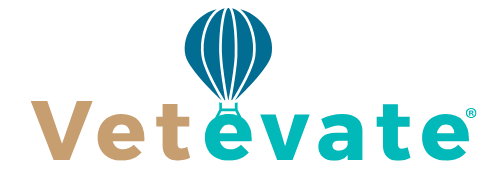The veterinary industry has experienced rapid growth in recent years, driven by increasing pet ownership, advances in animal healthcare, and heightened awareness around animal welfare. With more households welcoming pets and more veterinary services in demand, the need for qualified veterinary professionals has surged. At the same time, the supply of veterinarians, technicians, and support staff has not kept pace, creating a talent shortage across the country. In this environment, the ability to recruit efficiently and effectively is more important than ever—and veterinary job boards have become an essential tool in that effort.
Veterinary job boards serve as a centralized, industry-specific platform where employers and job seekers can connect in meaningful and targeted ways. Rather than posting on general job sites where veterinary listings might be buried among unrelated roles, veterinary clinics, hospitals, and animal health organizations can turn to platforms that cater specifically to their field. This specialization ensures that the job listings are being seen by professionals who understand the industry, have relevant experience, and are genuinely interested in animal care.
As the demand for veterinary services grows, the urgency to fill positions quickly and with the right candidates becomes critical. Every unfilled position impacts patient care, team morale, and overall business operations. Veterinary job boards help streamline this process by bringing both sides of the employment equation into one space—one that’s tailored, efficient, and focused on results.
Connecting with the Right Candidates
One of the biggest challenges in veterinary hiring is finding candidates who not only meet the qualifications on paper but also align with the culture and mission of the practice. Veterinary job boards are vital because they increase the likelihood of these meaningful matches. Their targeted nature allows employers to reach individuals who are actively seeking roles in the veterinary field, reducing the time and effort spent sorting through irrelevant applications.
Unlike broad job search platforms, veterinary-specific job boards often include features that allow employers to detail aspects of the job that are particularly important in this line of work. These may include species treated, equipment used, mentorship opportunities, continuing education support, and work-life balance policies. For job seekers, being able to filter jobs based on these criteria helps them find roles that truly align with their professional goals and personal values. The result is not just a quicker hiring process but one that leads to more satisfied, long-term hires.
Furthermore, these platforms foster a sense of community. Job seekers returning to the board multiple times know they are among others who understand their journey. Whether they’re new graduates or experienced practitioners looking for a new challenge, veterinary professionals benefit from being in an ecosystem built just for them. This familiarity breeds trust and encourages more active participation in the job search, which in turn makes the job board more effective for employers.
Supporting the Entire Recruitment Process
Veterinary job boards go beyond simply listing job opportunities. Many of the best platforms are designed to support the entire hiring process, from attracting talent to managing applications and even guiding interview preparation. This makes them vital not just for posting jobs, but for shaping a smart, strategic recruitment process that improves outcomes for both employers and candidates.
For employers, job boards often offer tools to track applicants, schedule interviews, and communicate with potential hires—all within a single platform. Some integrate with applicant tracking systems or customer relationship management tools, making it easy to manage multiple openings or keep tabs on high-potential candidates for future roles. These features allow veterinary practices to stay organized and professional throughout the process, which reflects positively on the employer brand and encourages candidates to remain engaged.
On the candidate side, veterinary job boards often provide resources to help professionals put their best foot forward. These can include resume-building tips tailored to veterinary careers, articles on workplace trends in the industry, and advice on navigating interviews. The goal is not just to connect job seekers with openings, but to prepare them to succeed. This level of support is crucial in an industry where the stakes of every hire are high and the talent pool can be narrow.
Moreover, the job boards often serve as a source of valuable data. Employers can track how many views their postings receive, how many applications come in, and how those numbers compare across different listings. This allows them to refine their job descriptions, improve their employer branding, and adjust their recruiting strategies based on real insights. In this way, job boards become not just a place to find talent—but a partner in the hiring process.
Driving Long-Term Industry Success
The veterinary industry relies heavily on strong teams to deliver quality care and ensure client satisfaction. The long-term success of any practice depends on its ability to recruit professionals who are not only competent but also passionate, empathetic, and team-oriented. Veterinary job boards are essential to achieving this goal because they serve as a bridge between opportunity and talent, helping practices build strong foundations for the future.
In a field where burnout is common and turnover can be high, finding the right fit is more important than ever. Hiring someone who isn’t well-suited to the role or the culture of the clinic can have ripple effects that impact patient care, staff morale, and even revenue. Veterinary job boards help mitigate this risk by creating space for more thoughtful, transparent hiring. Employers can highlight what truly makes their clinic special, while candidates can better assess whether the role suits their needs and career goals.
Over time, job boards also contribute to shaping the future of the veterinary profession. By making hiring more accessible and transparent, they help more professionals find their place in the field. They connect people with opportunities they may not have found otherwise, encourage exploration of new practice areas, and even support geographic mobility by showcasing jobs across regions. This helps address shortages, improve access to care in underserved areas, and ensure that talent is distributed where it’s needed most.
As the veterinary industry continues to evolve—with advances in telemedicine, growing attention to mental health, and shifts in client expectations—veterinary job boards will remain central to the industry’s growth and resilience. They aren’t just tools for hiring; they are platforms for professional development, networking, and industry advancement. They play a critical role in shaping not just careers, but the future of animal healthcare as a whole.
In a world where finding the right match can be the difference between burnout and fulfillment, between short-term staffing and long-term success, veterinary job boards are more than a convenience—they are a necessity. They bring clarity to a crowded marketplace, foster meaningful connections, and help ensure that the people who dedicate their lives to caring for animals can build the careers they deserve.




